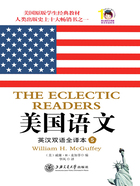
Lesson 6 The Singing Lesson
Jean Ingelow (b. 1830, d.1897) was born at Boston, Lincolnshire, England. Her fame as a poetess was at once established upon the publication of her"Poems" in 1863; since which time several other volumes have appeared. The most generally admired of her poems are"Songs of Seven" and"The High Tide on the Coast of Lincolnshire," She has also written several successful novels, of which, "Off the Skelligs" is the most popular. "Stories Told to a Child," "The Cumberers," "Poor Mat," "Studies for Stories," and"Mopsa, the Fairy" are also well known. Miss Ingelow resided in London, England, and spent much of her time in deeds of charity.
A nightingale made a mistake;
She sang a few notes out of tune:
Her heart was ready to break,
And she hid away from the moon.
She wrung her claws, poor thing,
But was far too proud to weep;
She tucked her head under her wing,
And pretended to be asleep.
A lark, arm in arm with a thrush,
Came sauntering up to the place;
The nightingale felt herself blush,
Though feathers hid her face;
She knew they had heard her song,
She felt them snicker and sneer;
She thought that life was too long,
And wished she could skip a year.
"O nightingale!" cooed a dove;
"O nightingale! what's the use?
You bird of beauty and love,
Why behave like a goose?
Don't sulk away from our sight,
Like a common, contemptible fowl;
You bird of joy and delight,
Why behave like an owl?
"Only think of all you have done;
Only think of all you can do;
A false note is really fun
From such a bird as you!
Lift up your proud little crest,
Open your musical beak;
Other birds have to do their best,
You need only to speak!"
The nightingale shyly took
Her head from under her wing,
And, giving the dove a look,
Straightway began to sing.
There was never a bird could pass;
The night was divinely calm;
And the people stood on the grass
To hear that wonderful psalm.
The nightingale did not care,
She only sang to the skies;
Her song ascended there,
And there she fixed her eyes.
The people that stood below
She knew but little about;
And this tale has a moral, I know,
If you'll try and find it out.